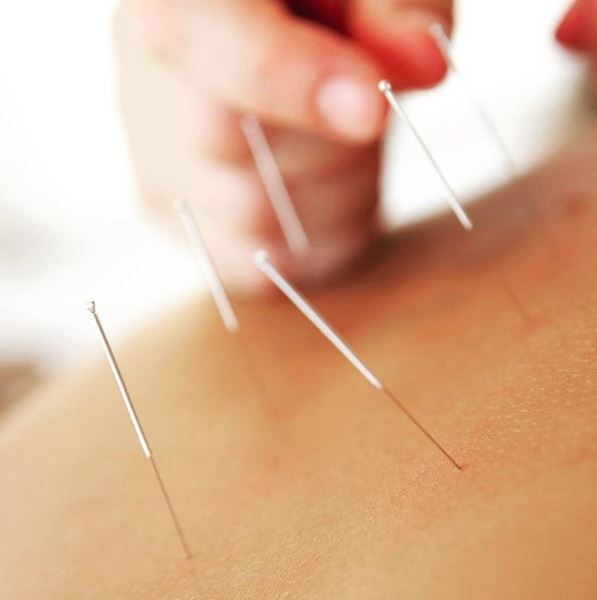
The causes and effects of a weakened immune system
Our immune systems are challenged and impaired by the colder weather, lack of natural vitamin D, stress, and poor diet. A compromised or dysfunctional immune system is a major component of most chronic diseases. Poor nutrition, stress and exposure to harmful agents all lead to a declining immune system. Once compromised, a weak immune system results in frequent colds, allergies, and reoccurring infections.
Immunity related disorders include:
Allergies
Asthma
Chronic fatigue
AIDS
Autoimmune disease
Cancer
Multiple sclerosis
Psoriasis
Immune deficiency syndrome
Treating symptoms, not causes
The Wei Qi, or defensive Qi, protects the body and is comparable to the immune system in conventional medicine. It acts as the first line of defense when the body is under attack from external pathogens. If the Wei Qi is strong, then the body is capable of fighting off bacteria and viruses. Extreme stress, lack of sleep and a poor diet can all play into how strong the body’s Wei Qi is and how well it performs.
Acupuncture, moxibustion, electroacupuncture, herbs, cupping and nutrition are tools that can be used to keep the immune system strong and healthy.
Each of these tools has a similar effect on the body and can regulate immune function, while also treating the underlying causes of the disease. This is done by reducing the symptoms, speeding up the healing, decreasing excess phlegm, decreasing inflammation and boosting the immune-mediated cells in the body that help ward off invasions.
Studies show regular acupuncture treatments can actually increase the number of T cells the body produces. T cells destroy harmful bacteria and viruses in the body. Acupuncture needles stimulate the brain into thinking an invader (virus or bacteria) has entered the body. The brain signals the increased release of T cells and white blood cells to fight off the intruder. The amazing part is the increased cellular response lasts for several days after the acupuncture treatment. Thus, receiving regular acupuncture treatments can actually prevent the body from getting sick.
In 2007, the paper Effect of acupuncture treatment on the immune function impairment found in anxious women posited the following.
It is presently accepted that emotional disturbances lead to immune system impairment, and that therefore their treatment could restore the immune response. Thus, the aim of the present work was to study the effect of an acupuncture treatment, designed specifically to relieve the emotional symptoms stemming from anxiety, on several functions (adherence, chemotaxis, phagocytosis, basal and stimulated superoxide anion levels, lymphocyte proliferation in response to phytohemagglutinin A (PHA) and natural killer (NK) activity) of leukocytes (neutrophils and lymphocytes) from anxious women.
The results showed that the most favorable effects of acupuncture on the immune functions appear 72 hours after the single session and persist one month after the end of the complete treatment. Impaired immune functions in anxious women (chemotaxis, phagocytosis, lymphoproliferation and NK activity) were significantly improved by acupuncture, and augmented immune parameters (superoxide anion levels and lymphoproliferation of the patient subgroup whose values had been too high) were significantly diminished. Acupuncture brought the above mentioned parameters to values closer to those of healthy controls, exerting a modulatory effect on the immune system.
As a traditional therapy applied for thousands of years, acupuncture has recently been attracting more and more investigators throughout the world. In the theory of traditional Chinese medicine, it is proposed that acupuncture can strengthen the human body to resist diseases by puncturing needles at certain points. The characteristic that acupuncture enhances resistance is closely related with the immune system, which functions in defense, homeostasis, and surveillance. More and more research has revealed that acupuncture can regulate immunity, for example, to enhance anticancer and antistress immune function and exert anti-inflammation effects. This may be the basis of acupuncture in preventing and treating later diseases. This special issue was developed to stimulate the continuing efforts in promoting the research on acupuncture and immunity.
Most allopathic health care is directed toward relieving symptoms rather than treating the underlying cause of the disease, which may include toxins, chronic viral infections or a combination of the two. Conventional treatments used in traditional Western medicine for overactive immune system disorders, such as allergies and autoimmune diseases like arthritis, often include treatments aimed at suppressing the immune system through medication. Although that method is useful for limiting symptoms and managing pain, it does not result in a cure. Side effects and other adverse symptoms may develop after long-term use of these suppressive drugs.
Restoring the immune function
So how does someone suffering from an immune disorder find relief? Acupuncture can regulate immune function and treat the underlying cause of the disease by reducing symptoms, speeding up the healing of infection and normalizing the body’s immune response. It works by stimulating specific portions of the autonomic nervous system through selected acupoints, which in turn causes responses in the immune system. Acupuncture can cause a rise in levels of interferon, on of the immune system’s messenger hormones. Regular acupuncture therapy can be effective in treating asthma, allergies, rheumatoid arthritis, lupus, colds and infections.
Acupuncture for inflammation and immune diseases
Acupuncture and Immunity article states, “As inflammation is the coherent pathophysiologic progress in many kinds of diseases, immune system and response of the human body are influenced in diseases such as cancer; the anti-inflammation effect of acupuncture may be a very important underlying mechanism of acupuncture in treating diseases. Moreover, TCM focuses on the theory that prevention before the onset of the diseases or intervening in an early stage of diseases is much better than treating after the onset. Preconditioning by acupuncture which means stimulation with acupuncture before the onset of diseases has been widely applied from ancient time to present clinical practice, proposing a potential field in preventing diseases.”